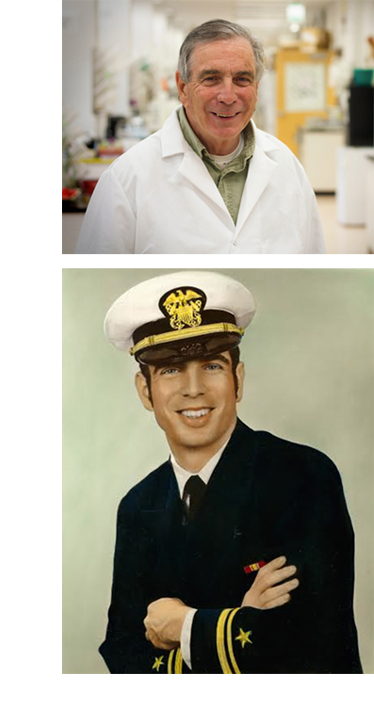
|
Dr. Duffy has broad research interests ranging from neurochemistry and biochemistry to environmental health. While at Harvard Medical School, Dr. Duffy worked with noted neuroscientist Dr. Denis Selkoe on elucidating the structure of Alzheimer’s amyloid. On returning to the University of Alaska Fairbanks, he continued his amyloid studies using synthetic peptides to characterize their neurotoxicity in collaboration with neuroscientists Bruce Yankner and Dan Kirchner. He additionally initiated studies on the effect of the extreme seasonality of the far north by studying melatonin diurnal cycles in both humans and their companion sled dogs. Working with environmental and wildlife biologists, Dr. Duffy introduced the use of common human biomarkers into the studies of mammals impacted by the Exxon Valdez oil spill. His studies demonstrate that chronic exposure can be measured biochemically in mammals, not only showing damage to a resource, but also demonstrating ecosystem recovery. His research also focuses on the development of biomarker and animal models as sentinel species. Dr. Duffy’s work on mercury in subsistence food is used by policy makers on the national level and allows him to involve students in research and discussions of environmental issues related to environmental ethics and justice. Current research projects include developing a dog model as a sentinel species for the Arctic to determine the effects of mercury on cytokine signaling, as well as environmental monitoring of long range transport of pollutants and their impact on subsistence resources. After holding the administrative positions of Department Head and Associate Dean for Graduate Studies and Outreach in the College of Science Engineering and Mathematics, he became Dean of the Graduate School and Interdisciplinary Programs. Currently, as Director of the Resilience and Adaptation Program, an interdisciplinary graduate program, Dr. Duffy seeks to develop an Alaskan workforce well- versed in resilience, sustainability, adaptation and social-ecological (human-natural) systems research. In recent years, RAP students have become leaders in academia, state and federal agencies, as well as tribal and non-profit organizations. Dr. Duffy serves as the Principal Investigator for a National Science Foundation S-STEM award, Resilience and Adaptation in Environmental and Natural Science. This undergraduate component to the Resilience and Adaptation Program supports underrepresented students engaged in scientific research. An innovative educator, Dr. Duffy has been a strong proponent of the Science Education for New Civic Engagements and Responsibilities (SENCER) for many years. He is an advocate for place-based learning and has a deep appreciation for Alaska Native Traditional Ecological Knowledge (TEK). Dr. Duffy initiated a partnership with the Effie Kokrine Early College Charter School and teaches university level chemistry courses to high school students. These dual credit courses help students acclimate to university expectations early while retaining a supportive high school laboratory environment. During the summer months, Dr. Duffy teaches Chemistry to Rural Alaska Honors Institute students. Following his RAHI instruction, he can often be found in Barrow, Alaska, participating in Ilisagvik Tribal College’s Climate Change Camps. Dr. Duffy has received the American Chemical Society’s Stanley C. Israel Award for Advancing Diversity in the Chemical Sciences, the National Institute for Deaf and Communication Disorders Minority Mentoring Award, the UAF Chancellor’s Award for Diversity and the Usibelli Distinguished Research Award. He is a fellow of the Arctic Institute of North America and the American Institute of Chemistry, where he served as President in 2004. He serves as the Executive Director of the Arctic Division, American Association for the Advancement of Science. |
 Dr. Lawrence Duffy is a veteran chemical scientist and educator, a long time Fellow of The American Institute of Chemists, and an active member of the Editorial Review Board of The Chemist. Dr. Duffy received his BS in chemistry from Fordham University in 1969 and an MS in organic chemistry from the University of Alaska in 1971. Following three years of service in the US Navy, Lieutenant Duffy returned to the University of Alaska and completed his PhD degree in biochemistry in 1977. After several years of research at Boston University, the Roche Institute of Molecular Biology, the University of Texas Medical Branch, Galveston, and Harvard Medical School, Dr. Duffy returned to the University of Alaska where he has held numerous administrative positions and continues to teach biochemistry, general chemistry, and research ethics.
Dr. Lawrence Duffy is a veteran chemical scientist and educator, a long time Fellow of The American Institute of Chemists, and an active member of the Editorial Review Board of The Chemist. Dr. Duffy received his BS in chemistry from Fordham University in 1969 and an MS in organic chemistry from the University of Alaska in 1971. Following three years of service in the US Navy, Lieutenant Duffy returned to the University of Alaska and completed his PhD degree in biochemistry in 1977. After several years of research at Boston University, the Roche Institute of Molecular Biology, the University of Texas Medical Branch, Galveston, and Harvard Medical School, Dr. Duffy returned to the University of Alaska where he has held numerous administrative positions and continues to teach biochemistry, general chemistry, and research ethics.